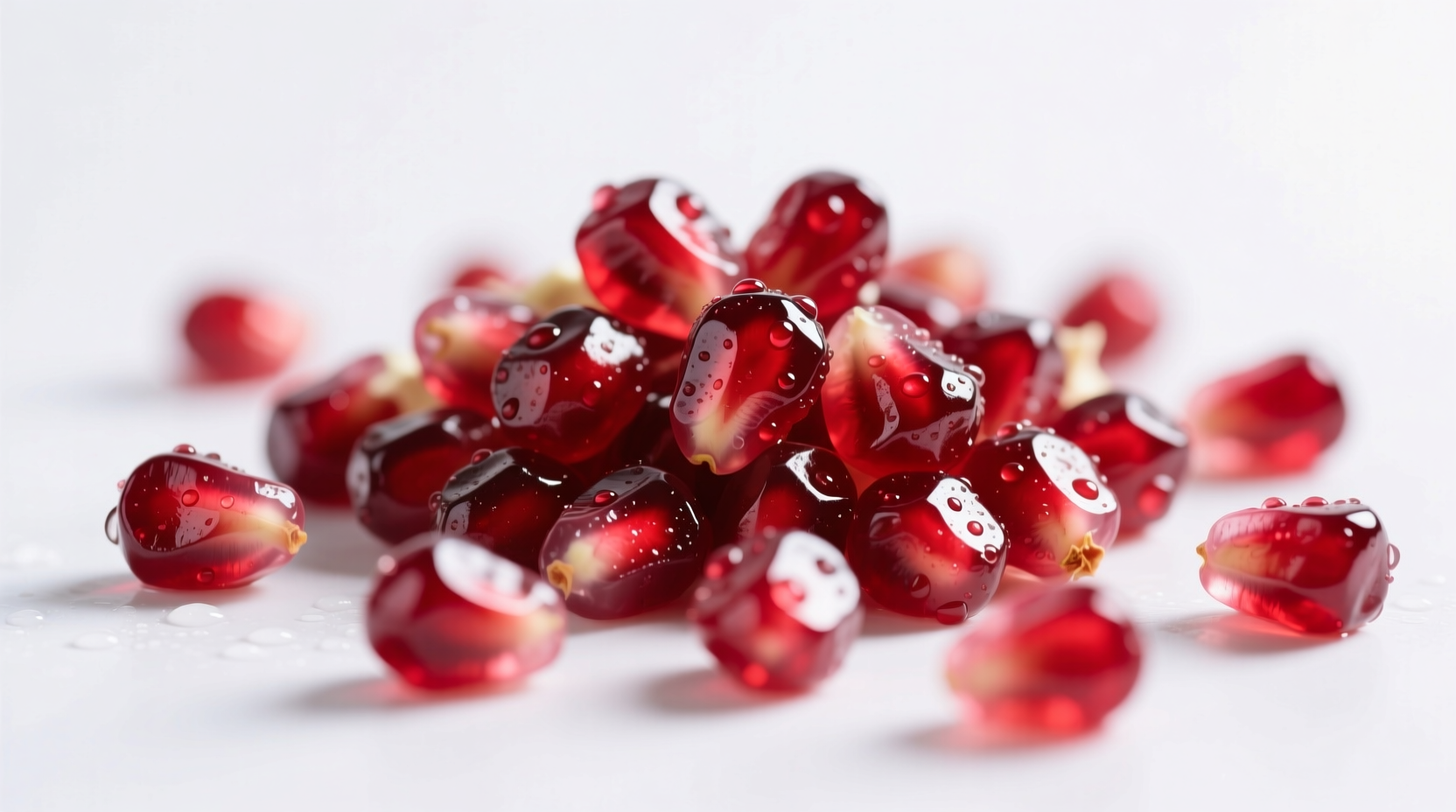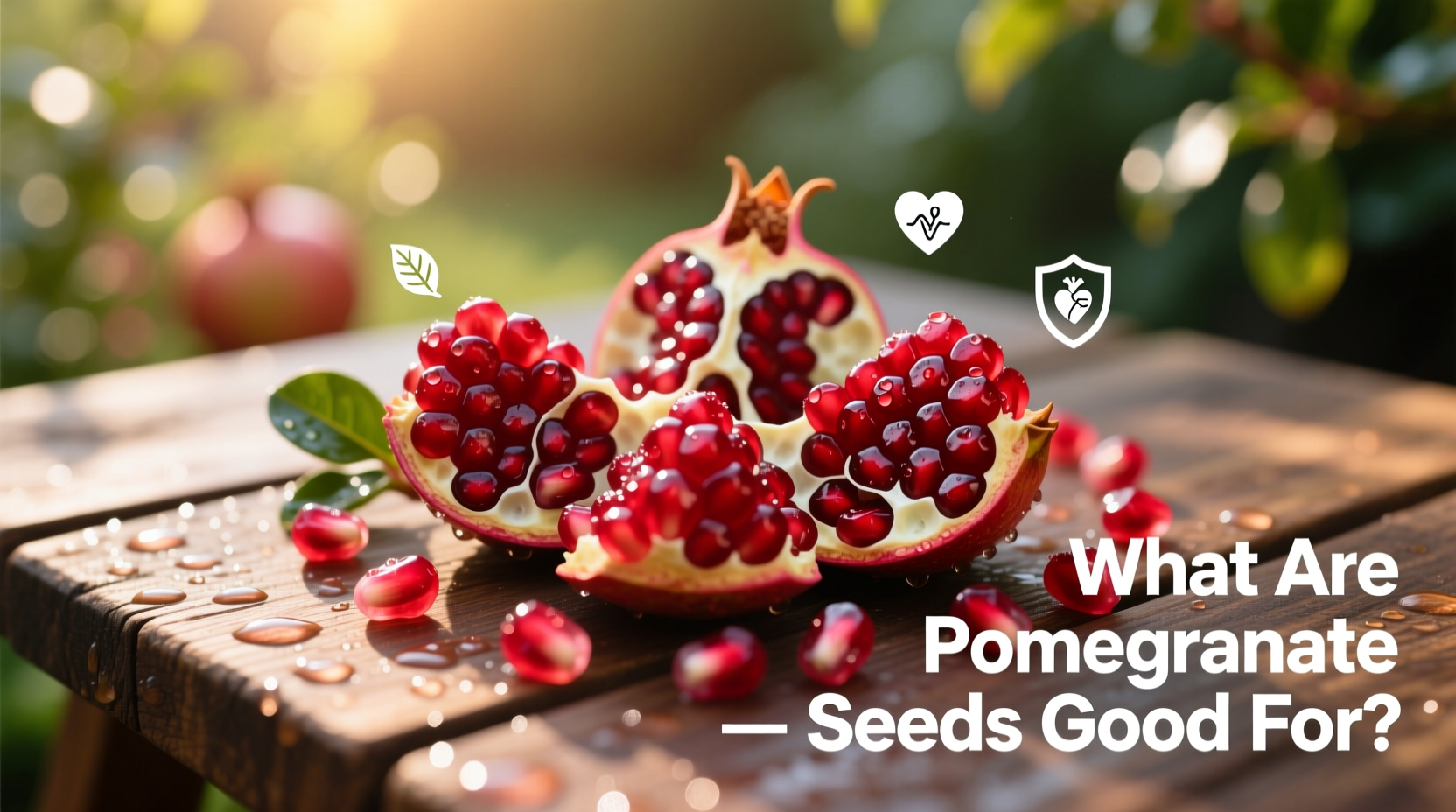For centuries, civilizations across the Mediterranean and Middle East have revered pomegranates not just as a culinary treasure but as a medicinal powerhouse. Today, modern science validates what ancient healers intuitively knew: those jewel-like arils packed with crimson seeds offer remarkable health advantages that extend far beyond their refreshing taste.
Nutritional Powerhouse: What Makes Pomegranate Seeds Special
Unlike many fruits where the seeds are discarded, pomegranate seeds (technically called arils) contain the highest concentration of beneficial compounds. Each juicy seed encapsulates a unique combination of nutrients that work synergistically to promote health.
| Nutrient | Per 1 Cup (174g) | Daily Value |
|---|---|---|
| Calories | 234 | 12% |
| Fiber | 7g | 28% |
| Vitamin K | 29mcg | 24% |
| Vitamin C | 15mg | 17% |
| Folate | 35mcg | 9% |
The true magic lies in pomegranate's unique phytochemical profile. Punicalagins, found primarily in the seeds and surrounding juice, are exceptionally potent antioxidants that give pomegranates their remarkable free radical-fighting capacity. According to research published in the Journal of Agricultural and Food Chemistry, pomegranate juice demonstrates three times the antioxidant activity of red wine or green tea.
Cardiovascular Protection Backed by Science
Multiple clinical studies confirm pomegranate seeds' impressive impact on heart health. In a landmark study published in Clinical Nutrition, participants with hypertension who consumed 150ml of pomegranate juice daily experienced significant reductions in both systolic and diastolic blood pressure within just two weeks.
The mechanism is multifaceted: pomegranate compounds improve endothelial function (the lining of blood vessels), reduce oxidative stress in the cardiovascular system, and inhibit the oxidation of LDL cholesterol - a critical step in atherosclerosis development. Researchers at the University of California found that regular pomegranate consumption slowed the progression of carotid artery stenosis by up to 29% over a three-year period.

Anti-Inflammatory Effects That Target Chronic Disease
Chronic inflammation underlies many modern diseases, and pomegranate seeds demonstrate impressive anti-inflammatory properties. The punicalagins and ellagic acid in pomegranate seeds inhibit key inflammatory pathways including NF-kB and COX-2 enzymes.
A comprehensive review in Nutrients analyzed 28 clinical trials and concluded that pomegranate supplementation significantly reduced multiple inflammatory markers including C-reactive protein (CRP), interleukin-6 (IL-6), and tumor necrosis factor-alpha (TNF-α). These effects were particularly pronounced in individuals with metabolic syndrome and type 2 diabetes.
Potential Cancer-Fighting Properties
While research is ongoing, multiple laboratory studies suggest pomegranate compounds may help inhibit cancer cell proliferation and induce apoptosis (programmed cell death) in various cancer types. The National Cancer Institute has documented promising results in prostate, breast, and colon cancer models.
Researchers at the University of Wisconsin found that pomegranate extract slowed the growth of prostate cancer cells by up to 50% in animal models. Similarly, a study in the Journal of Agricultural and Food Chemistry demonstrated that pomegranate seed oil inhibited the growth of breast cancer cells through multiple mechanisms including cell cycle arrest and induction of apoptosis.
Practical Ways to Incorporate Pomegranate Seeds Into Your Diet
Getting these benefits doesn't require complicated preparations. Here are simple, evidence-based approaches:
- Breakfast boost: Sprinkle 1/2 cup over Greek yogurt with nuts for a fiber-rich morning meal
- Salad enhancement: Add to spinach salads with walnuts and balsamic for maximum antioxidant synergy
- Smoothie power: Blend seeds (not just juice) to retain fiber and seed-based nutrients
- Meal garnish: Use as colorful topping for roasted vegetables or grain bowls
For optimal nutrient retention, consume pomegranate seeds fresh rather than processed. The mechanical extraction process for juice removes beneficial fiber and some seed compounds. When selecting pomegranates, choose fruits that feel heavy for their size with firm, unblemished skin.
Important Considerations and Limitations
While pomegranate seeds offer numerous benefits, certain considerations apply:
- People taking ACE inhibitors for blood pressure should consult their physician before consuming large quantities, as pomegranate may enhance medication effects
- The natural sugars in pomegranate (about 24g per cup) should be accounted for in diabetic meal planning
- Fresh seeds maintain higher antioxidant levels than processed products - aim for whole food consumption
- Benefits are dose-dependent; most studies showing significant effects used 1-1.5 cups of seeds or 8-12oz of juice daily
Unlike many superfood trends, pomegranate's benefits are supported by substantial scientific evidence spanning decades of research. The USDA's Phytochemical Database recognizes pomegranate as one of the most antioxidant-dense fruits available, with an ORAC (Oxygen Radical Absorbance Capacity) value of 2,341 μmol TE per 100g - significantly higher than blueberries (962) or strawberries (1,540).
Your Pomegranate Questions Answered
Below are answers to the most common questions about incorporating pomegranate seeds into a healthy lifestyle:











 浙公网安备
33010002000092号
浙公网安备
33010002000092号 浙B2-20120091-4
浙B2-20120091-4